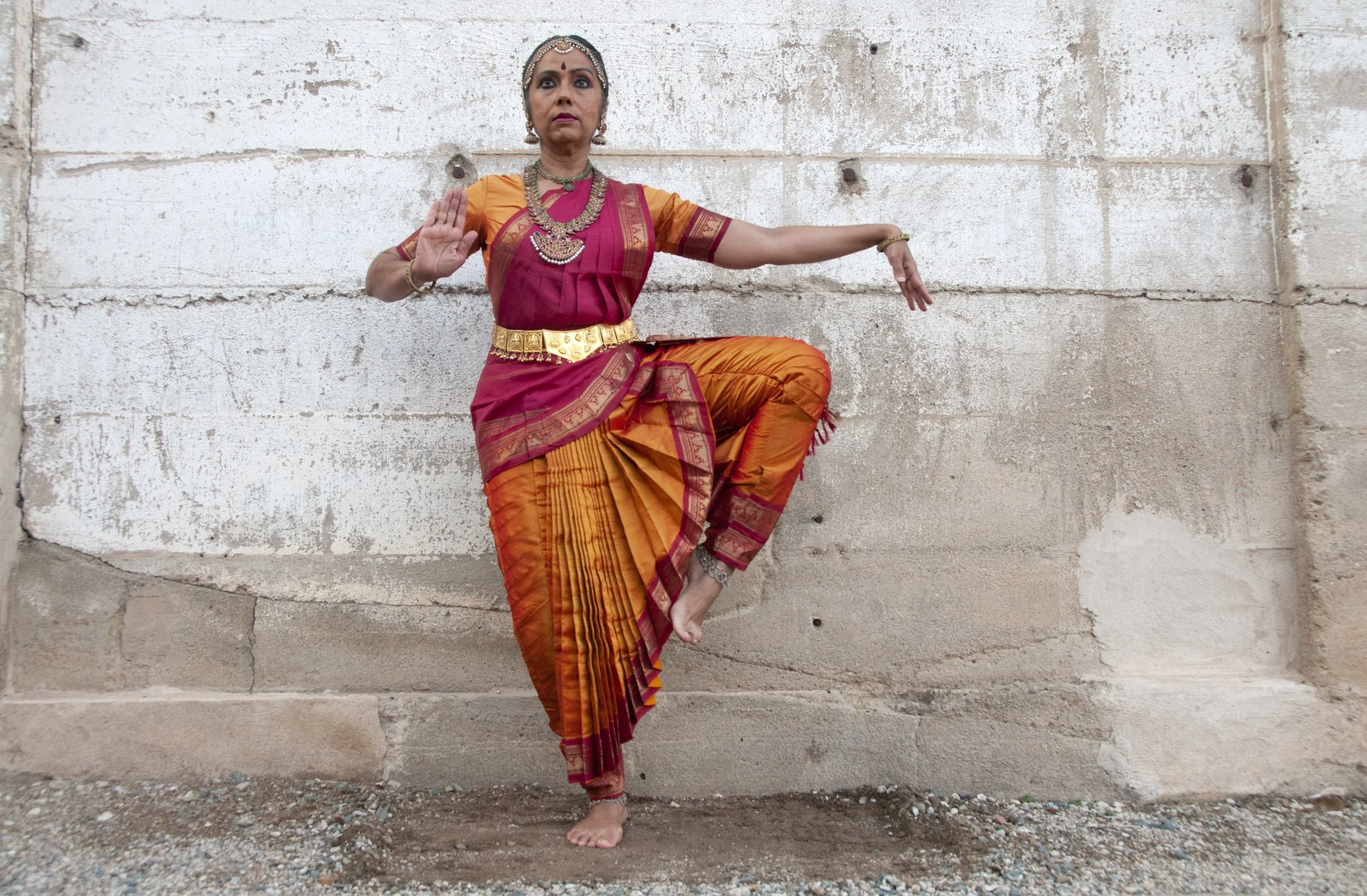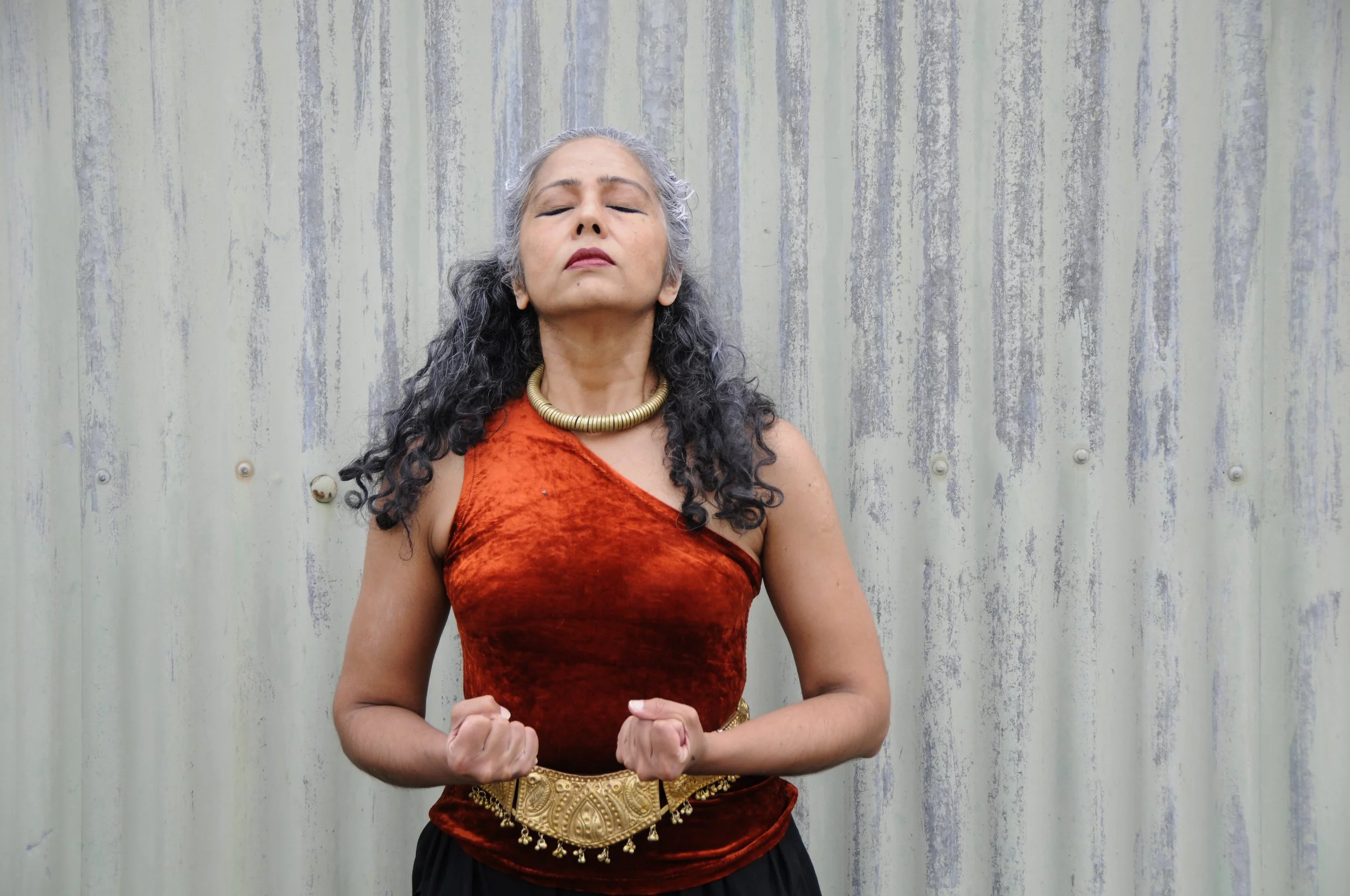Desire and pain are the villains in many spiritual philosophies. The destination of a spiritual inquiry is often proposed as freedom from pain—a state of being where we are gifted with an eternity of painless bliss. What underpins this proposed state of bliss is liberation from the tumultuous waters of our feelings and sensations— “non-attachment”. This free-floating state of non-attachment is suggested as delivering peace, stillness and, most importantly, painlessness.
Read MoreWhen I first left India at the age of twenty-one, I felt the ground taken away from under my feet. And I have danced in chaos since that time. Dancing the chaos is a very useful intelligence. Ancient Goddesses were Chaos invocations, their dance the only possible expression where words could not help language sensations beyond dualities. Here chaos is not the opposite of order, it is the great waters that eternally laps just beyond the fragile borders of our ordered cosmos.
Read MoreThe subjective has been discredited universally. While it was the domain of ancient philosophy, with the advent of science as the dominant and absolute lens on reality, the value of subjective experience vastly diminished. It was assumed the subjective had no rigour or intelligence. The subjective was “anecdotal” and was only of value when it was part of a group of similar experiences that legitimised it at both at the group and individual level. A unique experience was non-existent, or a fantasy.
Read MoreOften people speak to me of how they yearn to be peaceful, still and undisturbed. And this is a need that requires to be addressed. Most spiritual paradigms propose this as the central objectives of their traditions. We do need times of quietude, stillness and rest to survive.
The problem is when these become the only lenses on spirituality. How do we navigate a complex, unstable, unpredictable, Reality when we only value smoothness and comfort?
Read MoreYearning is the ancient antidote to hubris. The invitation to hold Yearning includes within it the assumption that there is no destination or resolution. We do not “achieve” what we yearn for.
Read MoreWe speak of the essence of Reality as mystery. Yet, we spend a lot of energy trying to explain, control and unravel this mystery. Yearning is the intelligence of this mystery. It is the sensation of brevity, the anguish of wanting the certainty of permanency, the joy of the beauty we long for and the remembrance of this joy which comes from our ancient bodies.
Read MoreIn many ancient cultures, there are some Divine manifestations that are explicitly subversive in terms of how we narrate Reality. These deities may be harbingers of disease, decay, death or chaos. Often invoking them is to ward them off, to outcast them from the domains of our “happiness”. They are feared and shunned.
Read MoreIn Indian tradition it is said that we manifest as embodied lives to fulfill an ancient yearning. Our bodies and the circumstances of our lives are designed to allow the unfolding of this yearning. Of course, this very narrative has been used to privilege some people above others—all narratives are razor’s edge spaces which can either serve self-interests, or service the harmony of the whole.
Read MoreYearning is the holding of desire, longing and seeking, in an expression of eternal incompleteness. This is a radical proposition amidst the popular celebration of spirituality as “completeness”. Yearning is the movement of a sensation that, when we allow it to emerge, is primeval. It makes no “sense” to speak of this in words, and complete sense when we experience and move this sensation.
Read More“Performance” underpins the approach to action in the world in our times. We have to perform at work, as parents, offspring, consumers, citizens, partners and in the myriad other roles we are required to do in our daily lives. In each domain we are assessed, either formally or informally. For example in workplaces our “performance” is assessed against criteria in formal ways whereas as parents we are assessed against implicit and explicit expectations at cultural and societal levels.
Read More









